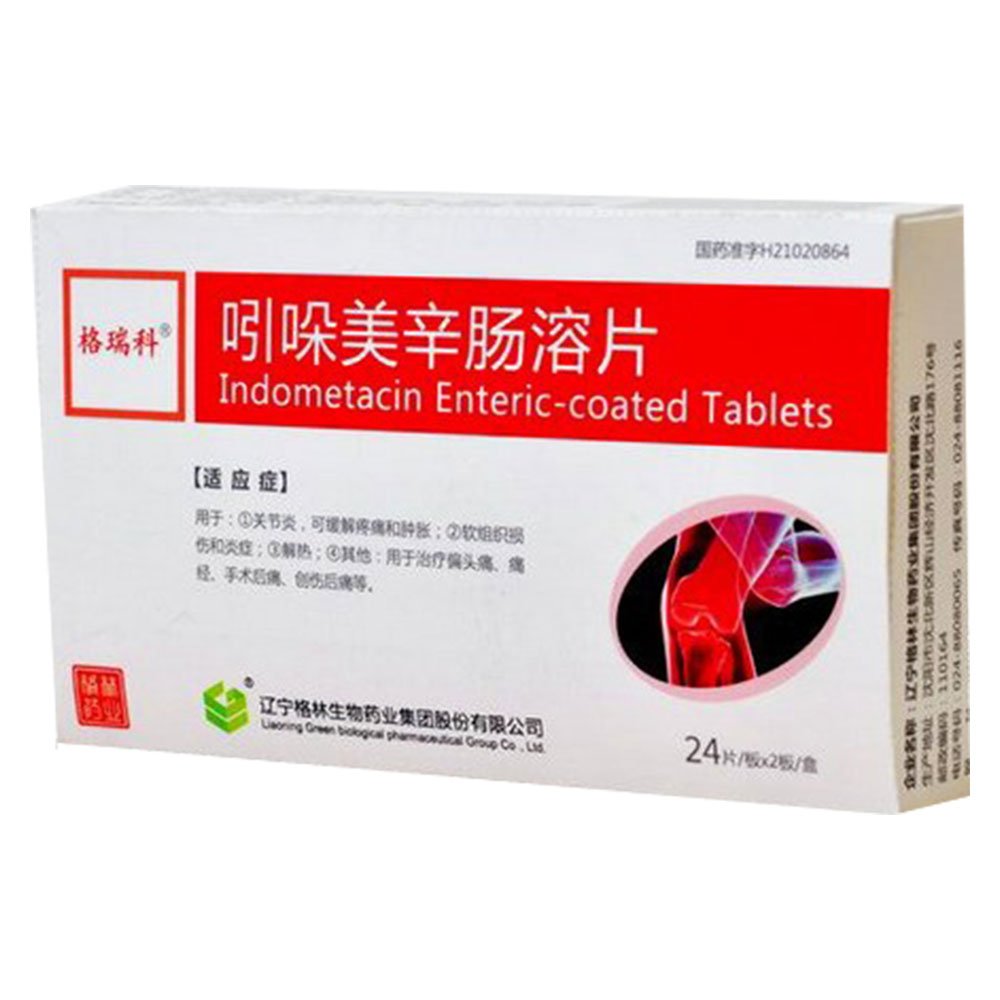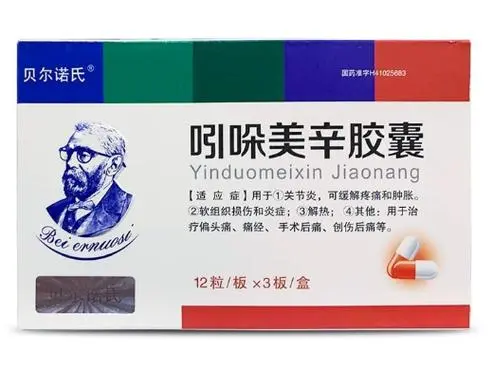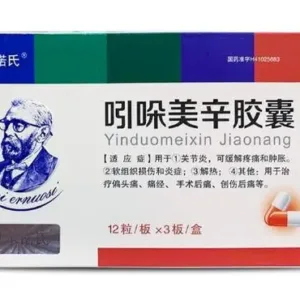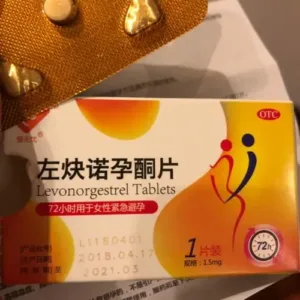Indometacin Capsules.
Effects and efficacy:
Used to treat non-articular soft tissue inflammations such as arthritis, cancer pain, gout, bursitis, tendinitis and frozen shoulder; can be used for symptomatic antipyretics of high fever, fever caused by malignant tumors or other uncontrollable fever; used for symptomatic analgesia of migraine, dysmenorrhea, postoperative pain and post-traumatic pain; used for anti-platelet aggregation, Behcet syndrome, biliary colic, and colic caused by ureterolithiasis. In addition, this product eye drops are used for non-infectious inflammation caused by ophthalmic surgery and non-surgical factors.
Usage and Dosage:
Adults can take it orally during or immediately after meals to reduce gastrointestinal adverse reactions. For rheumatism, the initial dose is 25-50 mg once, 2-3 times a day orally, and the maximum daily dose should not exceed 150 mg. For arthritis patients with persistent night pain or joint stiffness in the morning, 50-100 mg of indomethacin suppositories can be given into the anus before bedtime; for gout, the initial dose is 25-50 mg once, followed by 25 mg 3 times a day until the pain is relieved, and the drug can be discontinued; for fever, 12.5-25 mg once, no more than 3 times at a time. For rectal administration, 50-100 mg once, 50-100 mg a day, regardless of oral or (and) rectal administration, the single dose should not exceed 200 mg. For external use, 1.5-2 g (preparation) once, apply to the affected area, gently massage, 2-3 times a day. For liniment, apply an appropriate amount to the affected area, gently rub, 3-4 times a day. For eye drops, before ophthalmic surgery, 1 drop once, 3, 2, 1 and 0.5 hours before surgery. After surgery, 1 drop at a time, 1-4 times a day. Other non-infectious inflammations: 1 drop at a time, 4-6 times a day. For oral and rectal administration in pediatrics, 0.5-1mg/kg each time, 2-3 times a day. For anti-rheumatic, 1-3mg/kg a day, divided into 3-4 oral doses. For premature infants with patent ductus arteriosus, oral or enema, 0.2mg/kg each time, if ineffective, can be repeated after 8 hours, total amount <0.6mg/kg (<3 times). Regular follow-up examinations should be conducted during medication: blood picture and liver and kidney function; long-term users should undergo regular ophthalmological examinations, this product can cause corneal deposition and retinal changes (including macular degeneration). In case of blurred vision, an ophthalmological examination should be performed immediately. The in vivo process of this product is affected by the body's circadian rhythm. Taking the medicine at 7 am is more effective than taking it at 7 pm, with a high peak blood concentration and a long duration of action.
Adverse reactions:
This product has more adverse reactions than ibuprofen, naproxen and diclofenac. Gastrointestinal tract: 12.5%-44% of patients experience symptoms such as indigestion, stomach pain, burning sensation in the stomach, nausea and acid reflux. 2%-5% of patients experience ulcers, gastric bleeding and gastric perforation. Nervous system: About 10%-25% experience headaches, dizziness, anxiety and insomnia, and severe cases may have mental and behavioral disorders or convulsions. Kidney: Hematuria, edema and renal insufficiency occur, which are more common in the elderly. Various types of rashes: The most serious is bullous erythema multiforme (Stevens-Johnson syndrome). Hematopoietic system: The hematopoietic system is suppressed, resulting in aplastic anemia, leukopenia or thrombocytopenia. Allergic reactions: Asthma, angioedema and shock. It has cross-allergy with aspirin, and patients who are allergic to the latter should not use this product. It can cause liver damage (jaundice, elevated aminotransferase). It can cause hypertension, vasculitis and mild edema. Mydriasis, photophobia, blurred vision, diplopia, toxic amblyopia and visual loss may occur. Using this medicine in the eyes after lens transplantation will delay wound healing. Long-term use of this medicine may cause visual changes.
Drug contraindications:
Allergic to this product is prohibited. Pregnancy is prohibited. Lactation is prohibited. Liver and kidney dysfunction is prohibited.
Share:
Products
Our offers
Health Classification
Let us work together to protect precious health






























